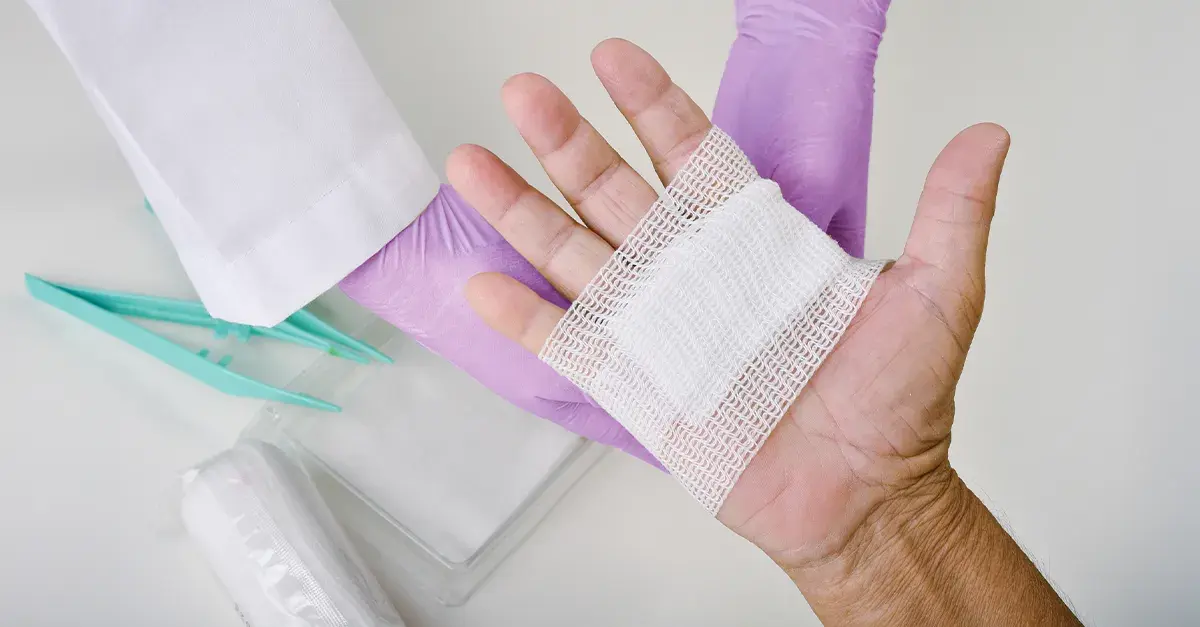Fraud, waste, and abuse (FWA) in healthcare can lead to significant financial losses and compromised patient care. Improper billing practices are particularly prevalent in the documentation of skin substitutes and grafts, as these high-cost procedures are vital for treating chronic wounds but can result in substantial overpayments and misuse of resources. For health plans, identifying improper payments for skin substitutes can mitigate these challenges and optimize patient outcomes.
Common FWA schemes in skin substitutes
One Cotiviti investigation helped a client by identifying bad actors and creating an action plan to prevent additional FWA. Cotiviti’s special investigations unit (SIU) conducted a detailed review of professional claims data from the past two years, revealing that skin graft procedures accounted for 30–40% of all payments to these providers—a suspiciously high percentage based on peer average data. The estimated financial risk associated with these services amounted to over half a million dollars. Cotiviti's analysis uncovered multiple documentation issues and high error rates, leading to the identification of one overpayment which surpassed $150,000.
Cotiviti's prepay data querying identified two providers billing excessive amounts for skin substitutions and grafts under HCPCS codes Q4217 and Q4180, revealing multiple issues such as:
- Billed units not coinciding with the documented size of the defect
- Inability to determine if and how the product was used, including the specific amount used and/or wasted
- Documentation not supporting the associated skin substitute graft procedure
- Cloning of documentation across patients
- Lack of properly signed consent forms from patients
These irregularities resulted in error rates >80% for all providers, with one having a 100% error rate. In addition, investigators discovered that several major payers did not cover HCPCS codes Q4180 or Q4217 and deemed them investigational or not medically necessary, raising concerns about the legitimacy of the services billed and highlighting the need for thorough investigation and proper documentation.
Resolving high error rates while preserving provider relationships
Following the investigation, the client provided education to the providers on proper billing and documentation guidelines. This education aimed to rectify the identified issues and prevent future improper payments. Cotiviti's proactive approach and comprehensive review helped ensure that the client could address the FWA concerns effectively and maintain the integrity of their payment systems.
This case of FWA underscores the importance of vigilant monitoring and thorough investigation of billing practices for skin substitutes and grafts. By conducting proactive analysis, educating providers, and implementing system edits to prevent payment for non-covered services, health plans can address FWA challenges head-on and ensure proper use of funds to improve patient care quality.
Key takeaways for payers
Mitigating the financial losses of FWA in skin substitutes begins with a comprehensive, proactive approach to claim review. Key steps include:
- Conduct proactive analysis of high-cost services such as skin graft procedures to identify outlier providers for review.
- Perform medical record audits to ensure the provider’s documentation coincide with billing requirements.
- Educate providers on proper billing and documentation guidelines for skin substitutes and skin graft procedures.
- Implement payment integrity system edits to prevent payment for non-covered services.
- Place providers that have been identified as having documentation issues on prepayment review to prevent future improper payments.
Evolve your FWA program in 2025
Traditional methods of managing FWA often rely on manual processes and outdated tools that prove inefficient in handling complex healthcare data. Read our new eBook and learn how to reduce FWA with advanced tools and techniques, focusing on:- How combined specialist review and machine learning can maximize the effectiveness of FWA investigations
- How a managed service model can augment current processes to improve efficiency
- How this new approach to FWA management and prevention drives real-world success



